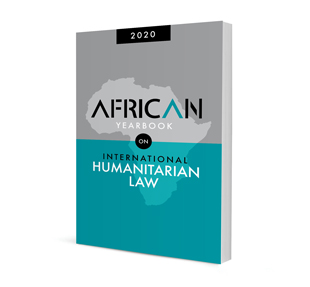
Uganda’s decision ‘In the Matter of an Arrest Warrant and the Surrender to the International Criminal Court (ICC) of Omar Hassan Ahmed al-Bashir’: Explanation, issues and consequences
Author: Kasaija Phillip Apuuli
ISSN: 2521-2621
Affiliations: LLM, DPhil (University of Sussex); Associate Professor, Department of Political Science and Public Administration, Makerere University, Kampala, Uganda
Source: African Yearbook on International Humanitarian Law, 2021, p. 150 – 173
https://doi.org/10.47348/AYIH/2021/a6
Abstract
On 19 December 2019, High Court Justice Peter Adonyo issued a warrant of arrest for former Sudan President Omar al-Bashir should he ever set foot in Uganda or in a territory controlled by Uganda. He also held that by failing to arrest and surrender al-Bashir on two occasions in 2016 and 2017, in fulfilment of the warrants of arrest issued by the International Criminal Court (ICC) in 2009 and 2010, Uganda had breached its own International Criminal Court Act (2010), the Rome Statute (1998) and United Nations Security Council Resolution 1593 (2005). This contribution discusses the judgment by considering the context of Uganda’s failure to meet its legal obligations with regard to the ICC’s arrest warrants against al-Bashir. It then discusses the future of Uganda’s arrest warrant against al-Bashir, and the court’s clarification of the superiority of United Nations (UN) decisions over those of the African Union (AU).